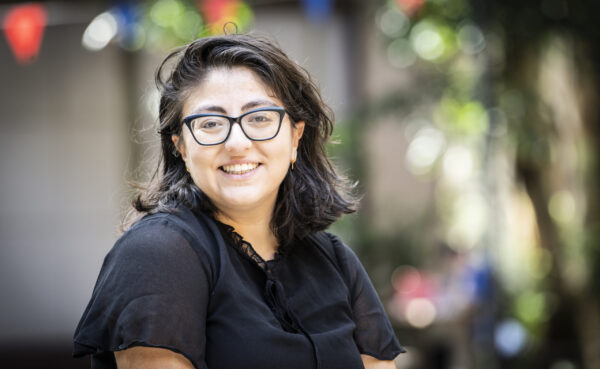
FWA: How did you start writing, and then publishing, essays?
EG: I mostly started writing memoir because I had grown up reading memoir – think Augusten Burroughs – and didn’t have much broader awareness about what other kinds of creative non-fiction existed. When I was in the first year of my PhD in political theory, I spoke to a publisher who gave me valuable advice, which was that I shouldn’t be afraid to incorporate the more critical and political theoretical writing I was doing during my day-job into my creative work. It seems funny to say that this was revelatory, but it took me a second to make that leap for myself. Since then, I have grown to really appreciate the form because it can allow for decentering the self; memoir is just one of many different tools an essayist can use to interrogate a question. I’ve found it useful to decentre myself both to do more structural critique, and to step into a less explicitly confessional space. I don’t always want to be confessing all the time – sometimes I like to protect my and others’ privacy.
FWA: Your book, Root & Branch, was released in 2022 and won the 2023 Victoria Premier’s Literary Award for Non-fiction in 2023. What were the most challenging or surprising aspects of publishing your first book?
EG: Hmm – I’ll give my answer in the form of a confession. I found it very hard to enjoy any of it. I distinctly remember waking up at 3am, the night of winning the VPLA, and just thinking to myself, Wow, I am incapable of feeling proud of or happy with myself. Instead I’d spent the evening in a kind of fugue of anxiety and dissociation, preoccupied with making sure to try to impress people and say the right things and, in short, ‘seem’ like someone who’d won a VPLA. Maybe because the subject matter was fairly personal, or because writers are generally introverted by nature, I found so much of the book tour to be emotionally and socially gruelling. On the other hand, what I found surprising were the opportunities I had to connect with others, including people who might not be considered the typical audience for Root & Branch. They amazed me with unexpected interpretations and resonances they’d found in the book.
FWA: What kind of essays, or writing more broadly, currently interest you? What is it about these works that appeals to you?
EG: It’s probably not that surprising, given recent world events, that I am reading a lot about Palestine, including From the River to the Sea: Essays for a Free Palestine, Jumaana Abdu’s Griffith Review essay, ‘Killing the poets’, and ‘A Place Without a Door’ and ‘Uncle Give me a Cigarette’—Two Essays by Palestinian Political Prisoner Walid Daqqah.
FWA: What is the main thing you hope participants in ‘Writing the Essay’ will take away from working with you?
EG: My focus when I mentor or teach the essay form is the importance of the ‘key inquiry’. It’s important for any writer to be asking a question or set of questions, even (especially) if they don’t pose an answer. Figuring out your key inquiry yields everything else, including structure and content (what kind of material you choose to incorporate, whether that be research or memoir or criticism). I also love problem-solving, which can often look like finding the right technique that addresses an ethical issue, such as writing something personal in a way that feels comfortable for the writer and the writer’s loved ones, or discussing trauma in a sensitive manner.
Writing the Essay
with Eda Gunaydin
7 May – 4 June 2024